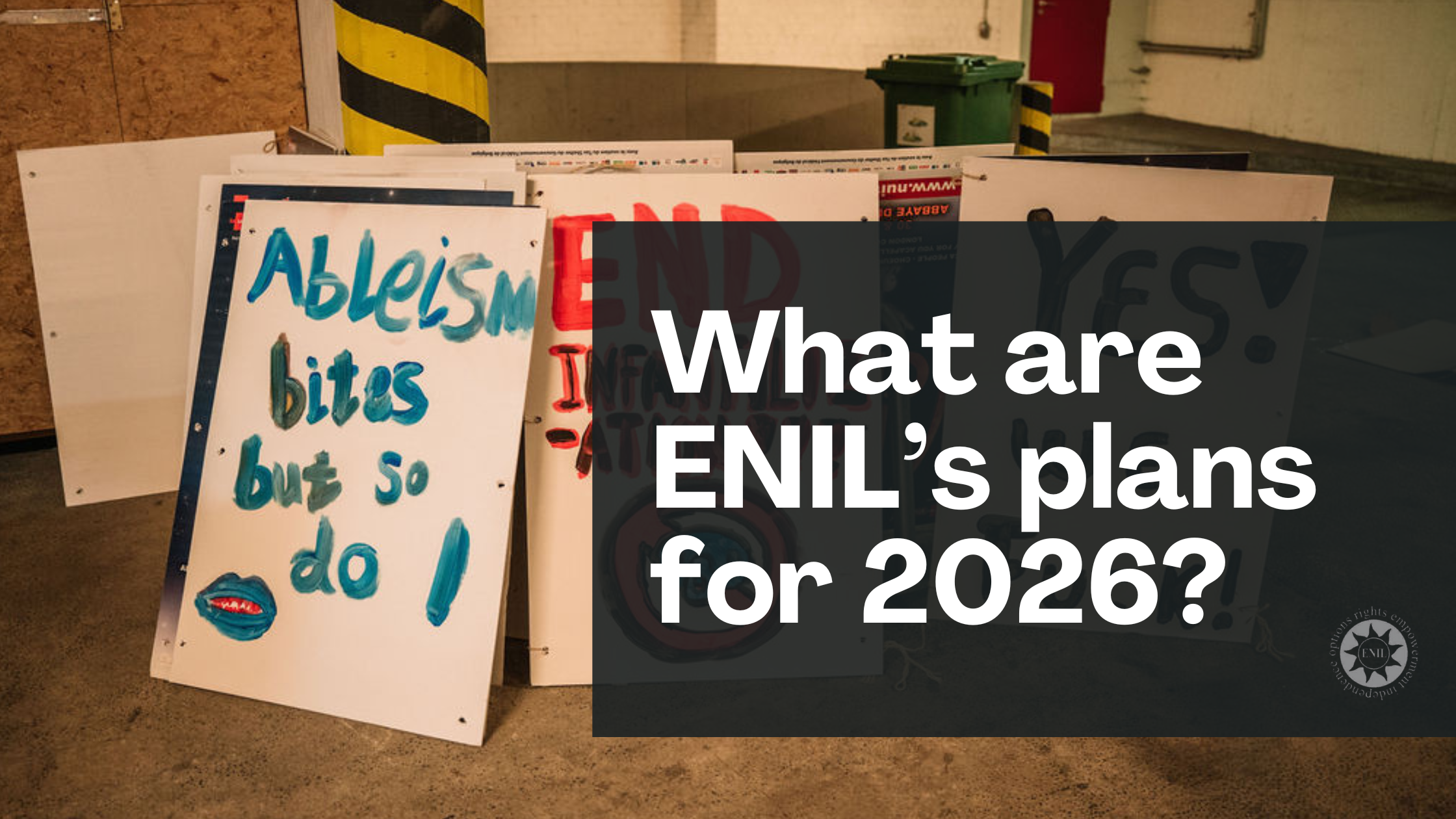In line with the European Strategy on the Rights of Persons with Disabilities 2021-2030 (ESRPD), this year the European Commission is due to present a Framework for Social Services of Excellence for Persons with Disabilities, which is supposed to improve the service delivery to disabled persons. It also aims at promoting an upgrade of service providers’ skills, making the jobs in this field more effective and attractive.
Given its historic role in the area of Independent Living and its commitment to advocate for it, ENIL published a Proposal for the forthcoming Framework. The ideas presented stem from the voices of disabled people themselves, collected by ENIL through a consultation of our members and academic experts.
Download the PDF version of the proposal here and the Word version here.
ENIL’s Proposal is articulated along 5 key themes:
- The human rights model of disability
- The provision of peer support
- The design and implementation of services through the co-production method
- The provision of available, accessible, acceptable, affordable, and adaptable services
- Full recognition and respect of the intersectionality of identities
Peer support
Peer support is defined as “the help and support that people with lived experiences are able to give to another individual in a similar situation”. It can take place in different settings and in many forms, such as peer support groups, personal assistance, emotional support, education, mediation and mentoring.
Peer support has been proven to be helpful in sharing information, knowledge, and experiences, increase disabled people’s awareness around the social implications of disability, and empower them to reach equality and participation.
ENIL’s recommendations on peer support include the recognition of peer support as an important principle to services, and the promotion and funding of Centres for Independent Living, Personal Assistance User Cooperatives and other peer support-based services.
Co-production
Co-production refers to the sharing of power between citizens and professionals for the design, planning, and delivery of services. It stems from the recognition that both parties can bring essential contributions, and it can lead to significant improvements in the lives of people and communities, as well as ensuring representation and self-determination.
However, co-production cannot be effective without a true redistribution of power, and this can be hindered by factors such as a lack of resources and professionals exercising soft forms of power.
With this in mind, ENIL proposes the implementation of forms of co-production and of measures to prevent professionals from exercising power over disabled people.
Access to services
For services to be effective, they must be accessible to disabled people. This implies that eligibility criteria and procedures to access them must be fair, transparent, and based on the needs of the person.
Being a precondition to access disability support services, disability assessment procedures should follow the same criteria, and should not be based on medical diagnoses exclusively.
ENIL’s recommendations concern guaranteeing the true accessibility of disability support services, and implementing fair and transparent disability assessment procedures, in line with the UNCRPD. Furthermore, ENIL promotes the training of staff on knowledge and skills useful for offering better support to disabled applicants.
Intersectionality
People are multidimensional: different aspects of someone’s identity produce different experiences, privileges and disadvantages, and the interaction between them results in people from the same social group facing very diverse realities. For example, evidence shows that disabled women are less likely to be in full time employment compared to disabled men, and younger and older disabled people are more likely to be institutionalised and excluded from community-based services.
When designing and implementing a service for disabled people, other factors such as gender, race, age and immigration status must be bore in mind, in order to have a more complete picture of their situation and better respond to their needs.
In line with these considerations, ENIL’s recommendations include the design of tailor-made services planned together with disabled people, the implementation of measures to support disabled people’s groups at higher risk of poverty, institutionalisation, exclusion, and discrimination.
The full Proposal can be downloaded here.



